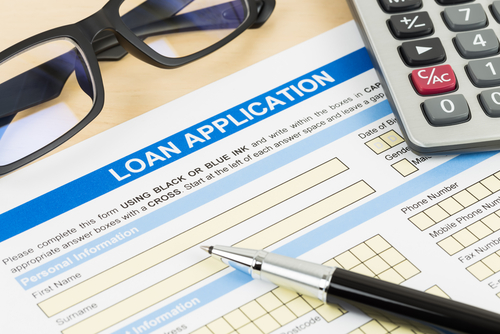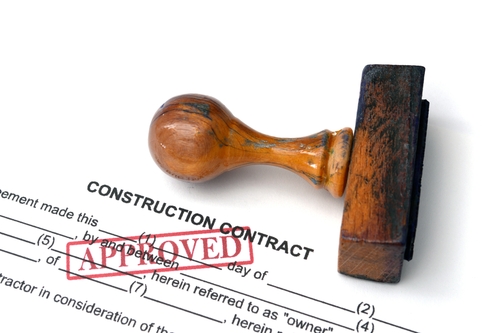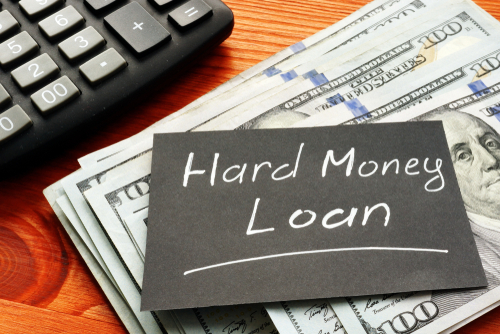How to Get a Hard Money Construction Loan
Financing the construction of a property seems like it would be challenging. However, if you’re an experienced real estate investor, you know that there are several ways to fund a property or real estate project. For instance, hard money loans are a great choice for investors who need quick financing and may not qualify for other loan types. Today, we’ll go over why people use hard money construction loans and how to get one for your next real estate project.

Contents of This Article:
- What Is a Hard Money Construction Loan?
- How to Get a Hard Money Construction Loan
- Pros and Cons of Hard Money Construction Loans
- Apply for a Hard Money Loan Today
What Is a Hard Money Construction Loan?
A hard money construction loan is a type of short-term financing used to fund the construction or renovation of a property. Unlike traditional bank loans, which are based on the borrower’s income and creditworthiness, hard money loans are secured by the property’s value.
These Maryland real estate loans are typically provided by private investors or companies rather than banks or financial institutions. However, while they’re easier to qualify for, they generally have higher interest rates and shorter terms, making them more expensive for borrowers.
Nevertheless, hard money construction loans are an important alternative for investors who need funds to get started on their new construction project and may not qualify for traditional financing.
How to Get a Hard Money Construction Loan
If you’re looking to get a hard money loan for your construction project, there are several steps you’ll want to take. It’s important to come prepared with a plan and any information your lender may need before they can fund your loan. Here are some of the steps you can expect to take.
- Research Lenders
- Prepare Your Proposal

- Assess Your Finances
- Submit Your Loan Application
- Underwriting and Approval
- Loan Terms and Conditions
- Close the Loan
- Construction Oversight
- Repayment Process
Research Lenders
Before getting any real estate loan, it’s crucial to research nearby lenders who specialize in the type of loan you want. Some lenders have different lending criteria and may only lend for certain property types. So, if you want a hard money construction loan, you’ll want to find lenders who specialize in fix-and-flip or construction loans. Generally, you can find compatible lenders through online searches or referrals from other real estate professionals.
Prepare Your Proposal
To ensure quicker loan approval, it helps to have a comprehensive plan in mind for the loan. So, develop a detailed project proposal that outlines your construction plans, including your construction timeline, budget, and expected profit once you sell. With this, you’ll want to gather all necessary documentation, like permits you may need, contractor estimates, and any other relevant information. Ultimately, your proposal should clearly demonstrate the viability and profitability of the project to potential lenders.
Assess Your Finances
Hard money lenders focus less on your personal finances and more on the property’s value as collateral. However, they may still assess your financial situation to ensure you can repay the loan. While your credit history may not be the primary factor in loan approval, good credit, a low debt-to-income ratio, and excellent repayment history can improve your chances of securing favorable loan terms.
Submit Your Loan Application

Once you’ve found a lender and have a plan in mind for your construction process and loan structure, you’ll want to submit your loan application. When applying for a hard money loan, having your project proposal and all the required documentation ready to go is crucial. Additionally, you’ll want to be prepared to provide additional information or documentation as requested by the lender.
Underwriting and Approval
Hard money lenders will review your loan application, project proposal, and financial documentation. From there, they will assess the viability of the project and your ability to repay the loan. This process may involve thoroughly evaluating the property’s value, market conditions, and potential risks associated with the construction project. If your application meets the lender’s criteria, you’ll receive conditional approval, which may be subject to final underwriting.
Loan Terms and Conditions
Once your loan application is approved, your lender will give you the loan terms and conditions, including the interest rate, loan amount, fees, and repayment schedule. Reviewing these terms carefully and ensuring you understand everything within the agreement before proceeding is crucial. Additionally, depending on your circumstances, you may have the opportunity to negotiate certain terms with the lender, whether it’s interest rates or fees.
Close the Loan
Once you accept the loan terms, you’ll need to sign the loan documents and provide any additional documentation your lender requires. Then, the lender will fund the loan, and you can proceed with your construction project.
Construction Oversight
Throughout the construction process, your lender may conduct inspections to ensure the work is progressing according to plan. They may also disburse funds in stages as construction milestones are reached to ensure the funds are being used as intended. That said, keeping your lender informed of any changes or issues that arise during the construction process is essential.
Repayment Process
You’ll need to repay the loan according to the terms outlined in your loan agreement throughout the construction process or when construction is complete. This may involve selling the property, refinancing with a traditional lender, or using other funds to repay the loan. Budgeting and planning for loan payments is crucial to avoid defaulting on the loan, as you may lose the property.
Pros and Cons of Hard Money Construction Loans
If you’re considering using a hard money loan to fund your next real estate construction project, it’s important to consider the pros and cons. After all, hard money loans aren’t right for every investor or every construction project. Here’s what you should keep in mind before exploring this alternative financing method.
Benefits of Hard Money Construction Loans
- Quick Approval Process- Hard money lenders generally have more lenient approval criteria than traditional banks. So, you generally don’t have to wait to be approved, allowing you to get funded quickly.
- Flexible Terms- Hard money lenders may offer more flexible loan terms and repayment options. As such, you may be able to negotiate and tailor your loan to meet your specific needs.
- Accessibility- Hard money loans are accessible to borrowers who may not qualify for traditional bank loans due to credit issues or other factors. So, even if you wouldn’t qualify for a traditional bank loan, you may get approved quickly for a hard money loan.
- No Prepayment Penalties- Some hard money lenders do not charge prepayment penalties, which means you may be able to pay off the loan early without incurring additional fees.

- Asset-Based Lending- Hard money loans are secured by the value of the property rather than the borrower’s creditworthiness, making them less risky for lenders and potentially easier to obtain for borrowers.
Drawbacks of Hard Money Construction Loans
- Higher Interest Rates- You’ll likely experience much higher interest rates with hard money loans than you would with a traditional bank loan. Unfortunately, this increases the overall cost of borrowing.
- Shorter Loan Terms- Hard money loans usually have shorter loan terms, typically ranging from six months to a few years. In turn, this may result in higher monthly payments and increased risk for borrowers.
- Higher Fees- Hard money loans may come with higher fees and closing costs compared to traditional loans, further increasing the cost of borrowing.
- Risk of Default- Hard money loans are secured by your investment property. This means that if you’re unable to pay the loan as agreed upon, you risk losing your investment.
- Limited Lending Options- Not all hard money lenders work the same. Some lenders may have stricter criteria and may not be willing to fund certain types of projects or properties. As such, it’s important to look for lenders who specialize in the loan type you’re looking for.
Apply for a Hard Money Loan Today
If you’re ready to start your next real estate project, look for a trusted local lender specializing in hard money construction loans. Do your due diligence to find a lender who meets your borrowing needs and will work with your unique circumstances.
Looking to secure a hard money loan for a property near Maryland? Look no further than Maryland Hard Money Lenders. Our team of experienced real estate professionals can help fund your next real estate investment quickly and efficiently. Contact MHML today to learn more about our lending process, or start by filling out our initial loan application.



